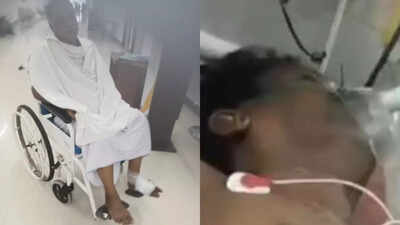- News
- City News
- chennai News
- Tamil Nadu: DSP transferred after SHRC issued notice to Kancheepuram police for custodial torture
Trending
Tamil Nadu: DSP transferred after SHRC issued notice to Kancheepuram police for custodial torture
DSP M. Sundaresan has been transferred after investigating custodial torture of an ex-MDMK worker and an electrician arrested for the murder of retired inspector Kasturi Parthasarathy. The SHRC had ordered the probe. Both arrested individuals suffered health issues due to alleged police excess and have been released on bail.


Sources in the SHRC confirmed that the SHRC ordered a detailed probe into the custodial torture based on the detailed report submitted by DSP Sundaresan. The single transfer order was issued on 10 October by the Tamil Nadu police DGP, Shankar Jiwal.
The same DSP was earlier assigned by the SHRC chairperson, S. Manikumar, and member, V. Kannadasan, to handle the three encounters of rowdy Thiruvengadam, Kakkathope Balaji, and Seizing Raja reported in the city.
As per the order, the head of the police force has requested the secretary of the SHRC to relieve the DSP and suggested making necessary additional charge arrangements with instructions to assume charge of the new post. If the DSP, who has been transferred, went on leave on medical grounds, he may be referred to the Medical Board.
Police arrested E. Valaiyapathy, 65, a former MDMK worker, and Prabhu, 52, an electrician, in connection with the murder in August.
Secretary of JAACT, Asirvatham, claimed, “Prabhu and Valaiyapathi suffered severe health complications, and they had to undergo dialysis even though they had never kidney-related ailments. This is very similar to the Sathankulam incident in which Jayaraj and his son Bennicks were beaten to death in police custody during the first wave of the coronavirus pandemic.”
End of Article
FOLLOW US ON SOCIAL MEDIA










